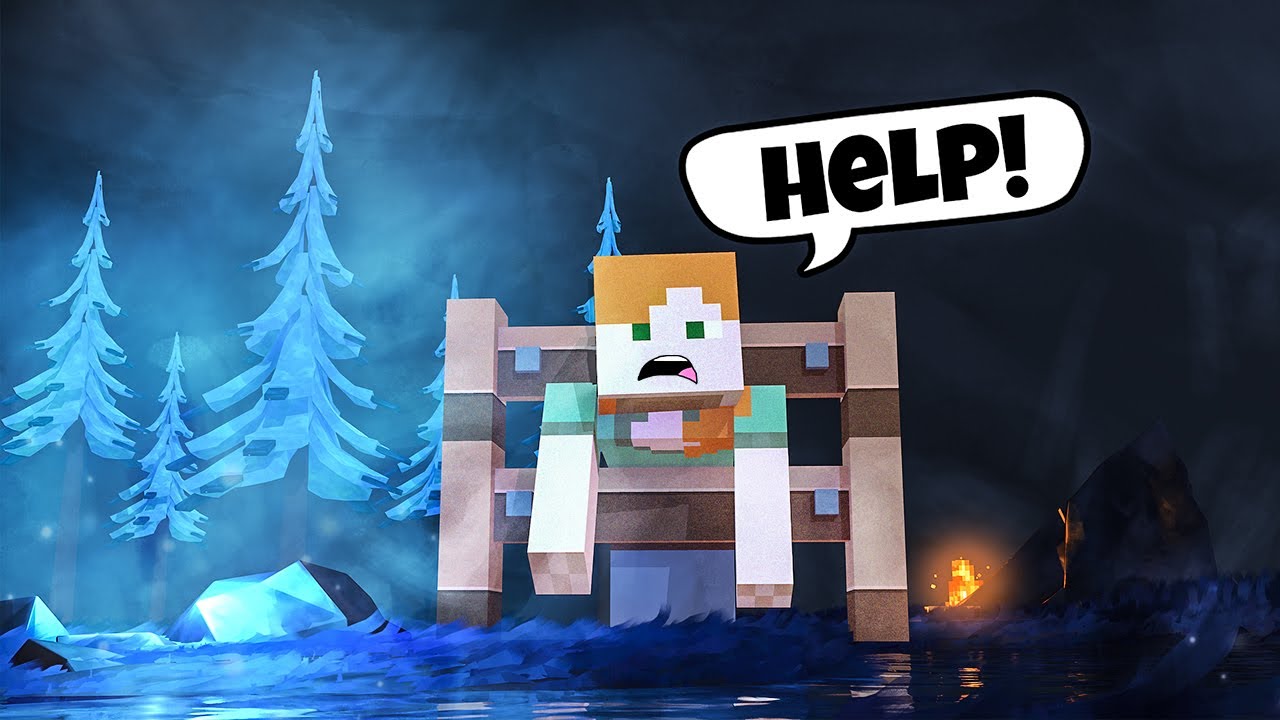
Help, I’m Stuck! Navigating Life’s Unexpected Roadblocks
We’ve all been there. That moment of sheer panic when you realize, “Help, I’m stuck!” It could be a literal physical predicament – a car mired in mud, an elevator stalled between floors – or, more often, a metaphorical one. A career path that feels like a dead end, a relationship at a standstill, a creative project paralyzed by writer’s block. This feeling of being stuck is a universal human experience, but understanding its roots and developing strategies to overcome it is crucial for personal and professional growth. If you’re thinking, “Help, I’m stuck!” know that you’re not alone, and there are steps you can take to regain control and move forward.
Understanding the Feeling of Being Stuck
Before we can address the feeling of being stuck, it’s important to understand why it happens. Several factors can contribute:
- Fear of Failure: The prospect of not meeting expectations can be paralyzing. We might avoid taking risks or making decisions altogether, leading to stagnation.
- Lack of Clarity: Without a clear sense of purpose or direction, it’s easy to feel lost and overwhelmed. Vague goals and undefined objectives can make it difficult to take meaningful action.
- Overwhelm: Too many choices, too many demands, and too little time can lead to burnout and a sense of being trapped. The sheer volume of information and responsibilities can feel insurmountable.
- Perfectionism: The pursuit of flawless results can be a major roadblock. Obsessing over every detail and fearing imperfection can prevent us from starting or completing tasks.
- External Circumstances: Sometimes, the feeling of being stuck is due to factors beyond our control – economic downturns, job losses, or personal crises.
Recognizing these underlying causes is the first step toward finding a solution. Understanding why you feel like saying, “Help, I’m stuck!” allows you to tailor your approach to overcoming the obstacle.
Strategies for Getting Unstuck
Okay, so you’ve identified the reasons behind your feeling of being stuck. Now what? Here are some practical strategies to help you break free:
Break Down the Problem
Large, complex problems can feel overwhelming. Divide them into smaller, more manageable tasks. This makes the overall goal less daunting and provides a sense of accomplishment as you complete each step. Instead of focusing on the entire mountain, concentrate on climbing the next small hill. If you feel stuck, break down the situation into smaller pieces.
Set Realistic Goals
Unrealistic expectations are a surefire way to feel discouraged. Set goals that are challenging but achievable. Celebrate small victories along the way to maintain momentum. If you’re consistently feeling stuck, re-evaluate your goals and ensure they align with your capabilities and resources. Don’t be afraid to adjust your timeline or scope to make them more attainable.
Seek External Perspectives
Sometimes, we’re too close to a situation to see it clearly. Talk to a trusted friend, family member, mentor, or therapist. They can offer a fresh perspective and identify potential solutions that you might have overlooked. Asking for help is a sign of strength, not weakness. If you’re thinking, “Help, I’m stuck!” reaching out to others is a crucial step.
Take Action, Even Small Action
Inertia can be a powerful force. Even a small step forward can break the cycle of stagnation. Start with something simple and achievable, and build from there. The momentum of progress can be surprisingly effective. Don’t wait for the perfect moment or the perfect plan. Just start. If you feel stuck, taking any action, no matter how small, can help you regain a sense of control.
Embrace Experimentation
If your current approach isn’t working, try something different. Experiment with new strategies, techniques, or perspectives. Be willing to step outside your comfort zone and explore unfamiliar territory. The key is to be open to new possibilities and to learn from your mistakes. Feeling stuck can be a sign that you need to adapt and evolve.
Practice Self-Care
Stress and burnout can exacerbate the feeling of being stuck. Prioritize self-care activities that help you relax, recharge, and reconnect with yourself. This might include exercise, meditation, spending time in nature, or pursuing hobbies. Taking care of your physical and mental well-being is essential for maintaining resilience and overcoming challenges. When you feel stuck, often it means you need to take a step back and focus on yourself.
Reflect on Your Values and Priorities
Sometimes, the feeling of being stuck arises from a misalignment between your actions and your values. Take time to reflect on what truly matters to you and ensure that your goals and activities are aligned with your core beliefs. This can provide a sense of purpose and direction, making it easier to navigate challenging situations. If you’re feeling stuck, ask yourself if you’re living in accordance with your values.
Learn From Your Experiences
Every setback is an opportunity to learn and grow. Analyze your past experiences to identify patterns and triggers that contribute to the feeling of being stuck. Use this knowledge to develop strategies for preventing similar situations in the future. Remember that failure is not the opposite of success; it’s a stepping stone. If you’ve been stuck before, what lessons did you learn that can help you now?
Consider Professional Help
If you’re struggling to overcome the feeling of being stuck on your own, consider seeking professional help. A therapist, counselor, or career coach can provide guidance, support, and evidence-based strategies for navigating challenging situations. There’s no shame in asking for help. In fact, it’s a sign of strength and self-awareness. Feeling “Help, I’m stuck!” is a valid reason to seek professional assistance.
Real-Life Examples of Getting Unstuck
Let’s look at a few examples of how these strategies can be applied in real-life situations:
- Career Dead End: Sarah felt stuck in her current job. She broke down her career goals into smaller steps, started networking with people in her desired field, and took online courses to enhance her skills. Eventually, she landed a new job that was a better fit for her interests and abilities.
- Relationship Stagnation: Mark and Lisa felt stuck in their relationship. They sought couples therapy to improve communication, identified shared goals, and made a conscious effort to spend quality time together. This helped them rekindle their connection and move forward as a couple.
- Creative Block: John, a writer, felt stuck on his latest project. He tried different writing techniques, sought feedback from other writers, and took breaks to recharge his creativity. He also changed his writing environment and experimented with new genres.
The Importance of Resilience
Overcoming the feeling of being stuck requires resilience – the ability to bounce back from adversity. Resilience is not an innate trait; it’s a skill that can be developed over time. Here are some ways to cultivate resilience:
- Build Strong Relationships: Social support is a crucial buffer against stress and adversity.
- Develop a Positive Mindset: Focus on the positive aspects of your life and cultivate gratitude.
- Practice Self-Compassion: Treat yourself with kindness and understanding, especially during challenging times.
- Embrace Change: View change as an opportunity for growth and learning.
- Learn From Your Mistakes: Don’t dwell on your failures; use them as opportunities to learn and improve.
[See also: How to Build Resilience in the Face of Adversity]
Preventing Future Roadblocks
While it’s impossible to avoid all roadblocks, there are steps you can take to minimize their impact:
- Set Clear Goals and Priorities: Having a clear sense of direction makes it easier to navigate challenges.
- Develop a Strong Support System: Surround yourself with people who can offer support and encouragement.
- Practice Self-Care Regularly: Taking care of your physical and mental well-being is essential for preventing burnout.
- Continuously Learn and Grow: Adapting to change and developing new skills can help you overcome future obstacles.
- Be Proactive: Anticipate potential challenges and develop contingency plans.
Conclusion
Feeling stuck is a common human experience, but it doesn’t have to be a permanent state. By understanding the underlying causes, implementing effective strategies, and cultivating resilience, you can break free from stagnation and move forward with confidence. Remember, “Help, I’m stuck!” is a signal to take action, not a reason to give up. Embrace the challenge, learn from your experiences, and never stop striving for growth and fulfillment. If you find yourself thinking, “Help, I’m stuck,” remember the tools and strategies outlined here, and know that you have the power to create positive change in your life. So, take a deep breath, and start moving forward, one step at a time. When you feel like you are saying, “Help, I’m stuck!” remember that you are not alone and many people feel this way. There are many ways to overcome this feeling and move towards a more fulfilling life.

